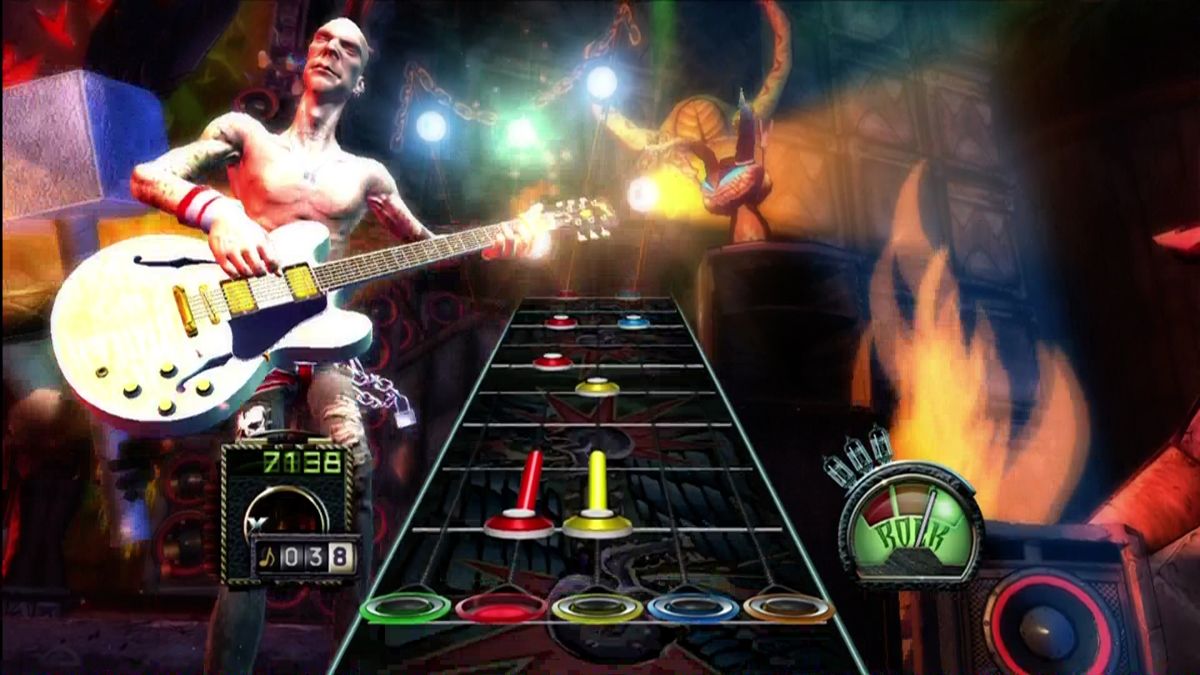I recently got the game Rocksmith for my PlayStation. For those that are unfamiliar with gaming, Rocksmith is a spin on a game called Guitar Hero that was really popular a couple of years ago. What you did was use a toy guitar that looked like this:
And then your game screen looked like this:
The colored bump you saw on the screen corresponded with the button you were supposed to press on the guitar controller while flicking the switch on the body of the guitar to mimic strumming. You can see why this was cool. Plus it made for a great game at parties as your friends cheered on your impressive button mashing skills.
Eventually the fad wore off but a new type of game has entered the picture: Rocksmith. Rocksmith has the same format but instead of button mashing you have to plug in a real guitar. Yes, you read that right. It uses a game to teach real instrument skills.
So argue all you want about the can of worms this opens (can it replace the private teachers, good technique, etc...) but there is a very important bottom line to this game: it's fun. It makes practicing FUN. Like, you WANT to do the tedious work that it takes to get better.
As a music teacher I couldn't help but be impressed. I want all of my families to be taking notes from this game! Maybe the style of teaching is different but it really cemented in my brain that a successful practice session is all in how you sell it. Make tedious work a game and it becomes a game.


Comments
Post a Comment